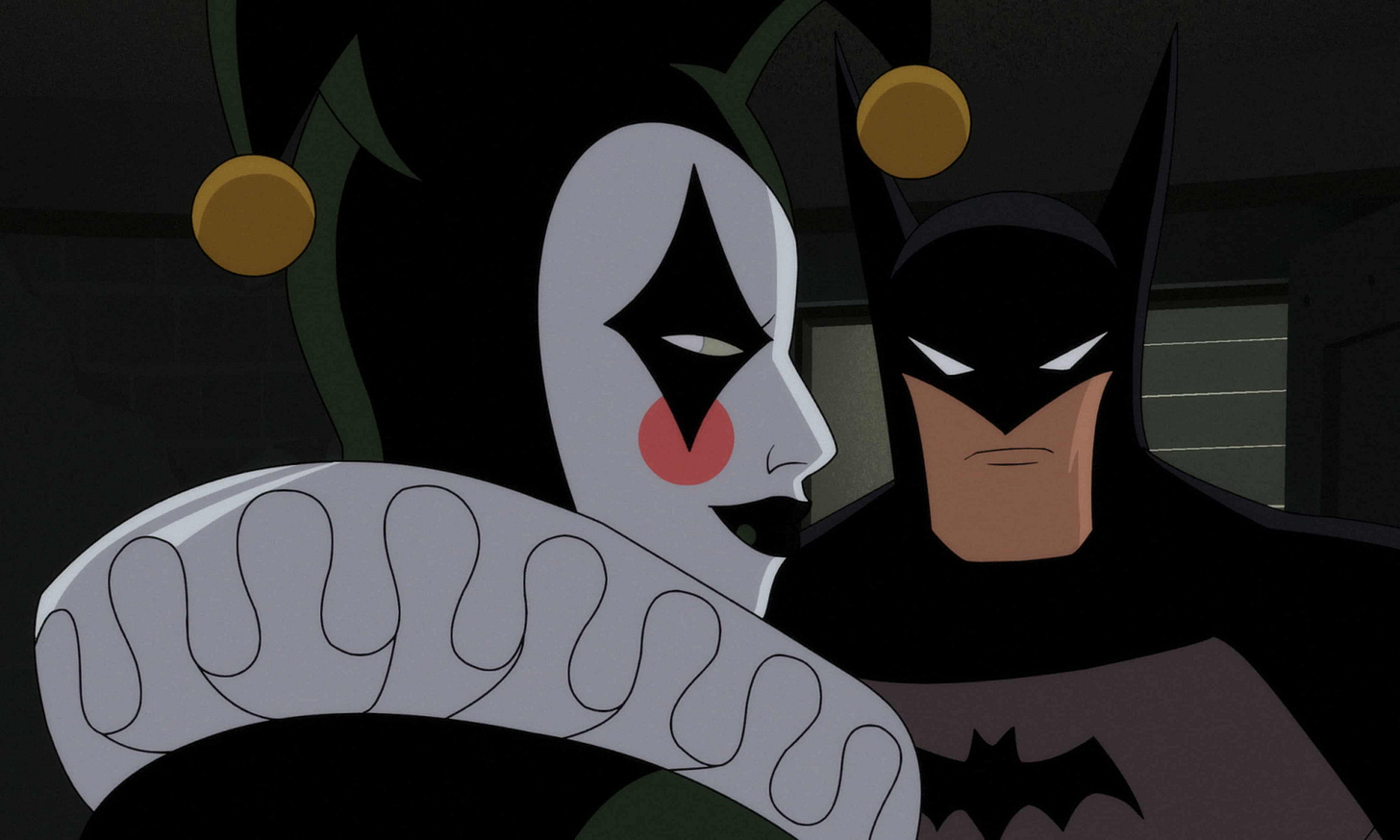Dear Friends,
I’m not sure how I spent decades of my life down South, as the heat has felt especially heinous this summer. After four years of trying to avoid COVID-19, someone gave me the kiss of death and directly deposited the virus in my body back in June. I suspect some of the heat intolerance is connected to recovering from that. I also learned recently that SSRIs can cause your body temperature to rise above 106°F and make you more susceptible to heat stroke. Also… the AC compressor broke in my car, so I also have that going for me.
In any case, it is too damn hot, there are multiple reasons for me to avoid the outdoors, and I have been trying to stay inside my ice palace as much as possible. I thought this might be an occasion as any to write another installment of the titular Miscellaneous Wonders, where I divert from the usual writing biz talk and run through the list o’ sundry. For this one, I’m gonna dish some media I’ve been consuming the past few weeks.
TV
The new Batman: Caped Crusader series is out, and I watched the entire first season. It took a few episodes to find its footing, but I’d say it was a solid overall. Set in a vague 1940s (going to go out on a limb and guess it’s post-WWII), it’s another reimagining of a ‘Year One’ type of Batman, where heroes and villains alike are new to their various professions and trying to find their footing. Harley Quinn was one of the highlights. The new Harley Quinn brings the character back to her psychologist roots, and she becomes more of an anti-hero of sorts, using her own means to dismantle ‘the 1%.’ There’s an overarching theme to the first season about corruption in both politics and the criminal justice system, which gives the series a contemporary edge. Sadly, Paul Dini, who wrote some of the best episodes in the original Batman: The Animated Series, is not involved—and his absence shows at times.
As someone who did not grow up reading superhero comics, Batman: The Animated Series was my first exposure to the genre (beside X-Men: The Animated Series). There were many flawless episodes in the original series, which Caped Crusader plays off being a spiritual reboot of. Daytime-Emmy-winning “Heart of Ice” is usually put above the rest, as it portrays Mr. Freeze as a sympathetic villain who is trying to do everything in his power to save his terminally ill love, Nora. “Beware of the Gray Ghost” guest-stars Adam West as the titular Gray Ghost, an aging TV hero that has waned in popularity (interestingly enough, the new Clayface in Caped Crusader imagines Basil Karlo as a typecast horror actor à la Bela Lugosi). “Perchance to Dream” is another favorite of mine from the original series; Mad Hatter traps Batman in a perfect world where his parents were never murdered. Bruce doesn’t realize what’s wrong until he tries to read a newspaper and finds all the text garbled—then he understands he’s stuck in a dream.
My favorite renditions of Batman know how to mix the deadpan with kitsch, darkness without cringe-worthy ultraviolence. I like a little bit of grit, but don’t necessarily want it stuck in my teeth. The allure of Batman to me is how it often de-emphasizes superpowers while centering wit, revenge, mystery, madness, and cat-and-mouse games. There’s the intrigue of Gotham itself, which is an infinite night where the day feels like anomaly. And Batman—born from the trauma of his parents’ deaths; Bruce Wayne dying for the same reason.
There’s something that’s always been delicious about the over-the-top playboy persona of ‘Bruce’ existing purely to serve Batman’s fanaticism and obsessions. He exists as an anti-hero (or villain, depending on how you look at things) not because he lacks courage or a moral code, but because Bruce Wayne’s existence as a billionaire itself is predicated on systemic exploitation. Philanthropy is a bandage, a guise. By fixating on individual action over collective struggle, Batman's motives aligns more closely with the villainy of capitalist ideologies. Even though well-intentioned, Batman ultimately reinforces the existing social order rather than challenging the root causes of criminality and inequity. Gotham is this self-perpetuating asylum (in both senses of the word: sanitarium and sanctuary). I wouldn’t want to live there, but it’s a hell of a lot of fun watching the characters run amuck.
As one final Bat-related thought, I’ve always appreciated that he has a soft spot for children (he tries to save them from the same fate he suffered, but often fails). I’ll leave you with one of my favorite animated Batman moments; it comes from “Epilogue,” an episode of Justice Unlimited (and Batman Beyond, technically):
Movies
Thelma is a major contender for my personal favorite of the year. If you have (or are) aging parents or grandparents—or are otherwise a caregiver—you’ll find some recognition in this. Thelma simultaneously juggles pastiche of action-espionage films like Mission Impossible while bringing in the black comedy bits on top of the genuinely heart-wrenching portrayal of the lives of nonagenarians (an honor that few of us get to age into). It nails the balancing act of tones. The casting is immaculate. June Squibb is a delight. Richard Roundtree (R.I.P.) is completely charming. Parker Posey kills it as a helicopter mom. Go watch this if you haven’t seen it already.
Longlegs, on the other hand… I wanted to like it more than I did. The send-up of this movie fall somewhere between The Silence of the Lambs, Se7en, Kurosawa's Cure, and a monster-of-the-week X-Files episode. At the same time, it never seemed to fully figure out what it wanted to be, as far as the plot goes. There are also some comedy bits that, for the most part, land well, but it does beg the question about the tone of this movie and what it was aspiring to be.
For the most part, Longlegs works as a thriller because of a great troupe of actors/casting, atmospheric set design and cinematography, and chilling sound design. I think that, somewhere underneath the inconsistent plot is a good movie. The third and final act though sadly misses in a way that betrays a lot of earlier set-up. It has an embarrassing exposition dump and over-explains itself when it started out strong with a less-is-more type of introduction.
If you know how much I love portrayals of the occult in media, you’re probably not surprised to also know how picky I can be about these things. The occult elements in Longlegs also feel tacked on at times and neither lean fully into their inspiration or move far away enough from it where it carves out its own identity. I wish the film had scaled back and trusted the viewer to follow Lee as she discovers the solutions to the mysteries surrounding her more instead of literally having a voice-over tell us. Maika Monroe is extremely captivating as our socially awkward, dry hero, and at times I wish the plot scaled back more to let her shine.
And while I appreciate the way Cage just throws himself into whatever role he’s doing, the costume decisions for the killer were questionable for me. I get that there’s an element of Buffalo Bill homage, but I feel like Vito Russo would have given the sissy choices a celluloid side-eye.
That all being said, while the questionable writing brought the movie down for me, everything else about it was a wild ride. Do I think it was good? Obviously not. Do I think it’s worth seeing if you’re into thrillers and scary movies? Absolutely. If you can managed to avoid the gazillion-dollar viral marketing this film threw down, you might be able go in to appreciate it just for what it is.
Book Stack
I read a bunch of books on my TBR list back in June, but July kept me busy with a variety of freelance gigs and teaching (if any of my students are reading this—I had such a fabulous time working with you—thank you!). I only have four weeks left until the academic year is before me again with all its various responsibilities… so while I wait for the return of autumn and cooler weather, I’m going to enjoy some air-conditioning and indoor reading. Here’s what I’ve recently read + am reading at the moment:
Until next time,
JD




